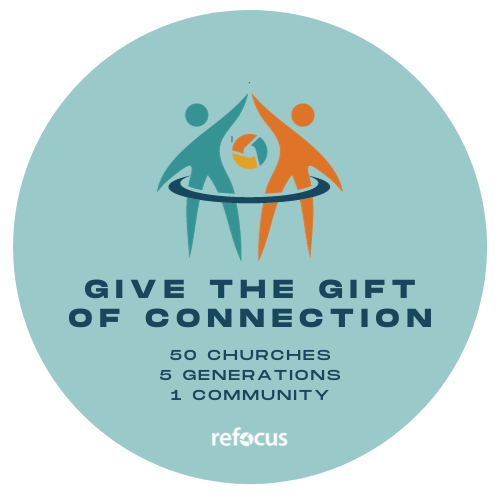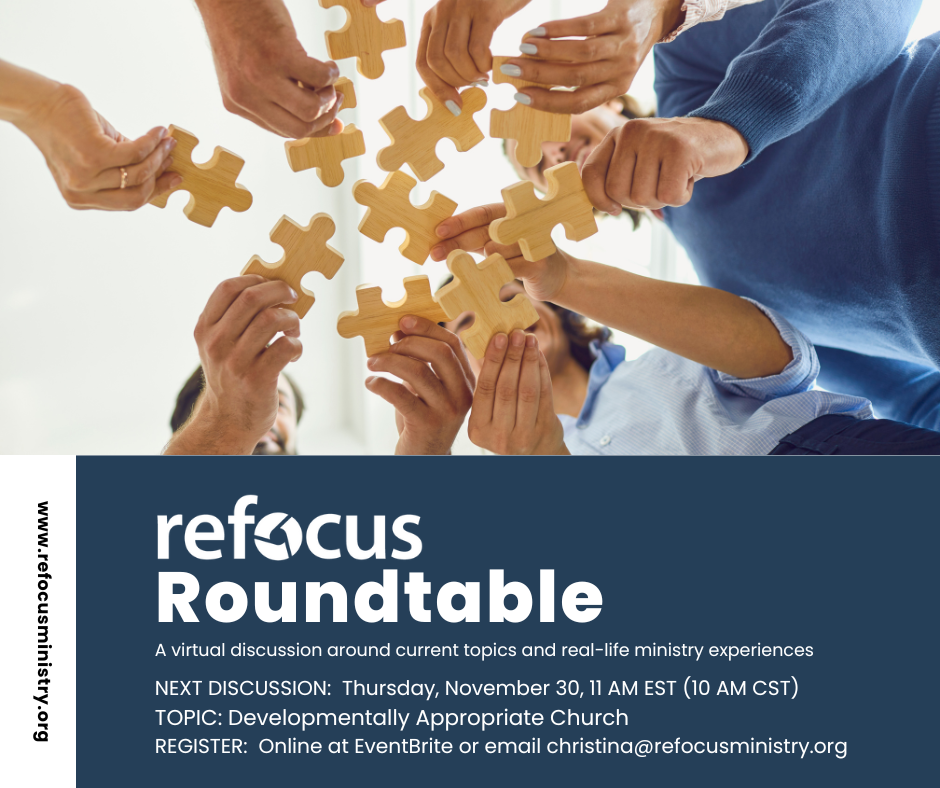“Younger people are less religious than older people.”
Across the board, this is generally assumed to be true. Doesn’t really matter what country one observes or what metrics one uses; statistically, research finds that younger generations tend to be less religious than those who have come before.
However, it turns out, what does matter is which religion is being studied and it does matter what we mean by “religious.”
According to recent Pew Research, Christianity not only has the most predominant age gap, in that it affects nearly every country that identifies as Christian, it also has the largest one by percentage meaning there is a larger gap in between the ages than other religions (For more, click here).
“Age gaps are also more common within some religious groups than in others. For example, religion is less important to younger Christian adults in nearly half of all the countries around the world where sample sizes are large enough to allow age comparisons among Christians (37 out of 78).
For Muslims, this is the case in about one-quarter of countries surveyed (10 out of 42). Among Buddhists, younger adults are significantly less religious in just one country (the United States) out of five countries for which data are available.
There is no age gap by this measure among Jews in the U.S. or Israel, or among Hindus in the U.S. or India.1 (Source)
Pew Research, 2018
The highest retention rates for religions are found in the Hindu, Muslim and Jewish communities. The lowest retention rates are found in Mainline Protestants, Buddhism, Jehovah’s Witnesses and atheism (Source).
Why?
There are so many people asking and answering this question. There’s a lot of research being done not only on why younger generations are leaving their faith and/or their church and why some choose to stay. More precisely, many younger generations are saying, “I still believe in God and Jesus and the Bible, but I don’t want to be called a Christian.” They are opposed to many of the movements that have been labeled as “evangelical” or “Christian” in the past decades and desire to distance themselves from that label and institution.
And that’s where it matters how we define “religious.” Springtide Research has recently released their State of Religion & Young People report for 2023 entitled “Exploring the Sacred.” In their study, they asked young people to describe their experience with the sacred. In their report, only 15% described their religion as “Nothing at this time.”
The rest described themselves as religious, but their categories aren’t what we (older generations) might include on our definition of “religion.” For instance, their categories include things like “Just Christian” which 19% of those surveyed defined themselves as, pointedly steering away from any denomination or organized religious label. Atheist (6%) and Agnostic (6%) shows up but so does “Something Else” often referred to as “Spiritual but Not Religious” by older generations.
In the case of Western Protestant Christians, our definition of religion is often pretty narrow and refers either narrowly to Western Protestant churches or broadly to “The Church” but rarely inclusive of other religions and non-organized religious experience. So it may not be a matter of younger generations not being “religious” but not being associated with organized religion.
Here are some common reasons for younger generations distancing themselves from church.

- Some stay away from church because they don’t feel like they belong. A study shared by Christianity Today found that about “58 percent of young adults indicated they dropped out because of their church or pastor. When probed further, they said:
- Church members are judgmental or hypocritical (26%).
- They didn’t feel connected to the people at their church (20%).
- Church members were unfriendly and unwelcoming (15%)
- Religious, ethical or political beliefs (52%)
- Others leave because their faith or their church was never truly theirs, just something they had to do for their parents or because children’s ministry or youth group was a fun social hangout. “Consider this finding: when students involved in the College Transition Project were asked what it means to be a Christian, 35 percent “gave an answer that didn’t mention Jesus at all.” (Source)
- Still others leave because they have no relationships the church or a compelling reason to stay. According to an interview with Dr. Kara Powell of Fuller Youth Institute, “The number one reason why young people are walking away from their faith—it’s a lack of intergenerational worship and relationship” (Source).
- A more recent development, the perpetuation of conspiracy theories, political agendas, and nationalism within the church. A recent study by Lifeway found that 49% of pastors frequently hear members sharing conspiracy theories and predominantly these belong to the 65+ generation and are part of a predominantly white church (Source). This is a major issue for younger generations who both reject this mixing of church and state and racial divide and also call out conspiracy and nationalism on a regular basis.
Basically, each of these reasons boil down to this: We need faith communities that are, as Dr. Powell stated another interview, “ruthless about focusing on Jesus [and] realize that Christianity can be awkward and sometimes confusing, but Jesus is always magnetic
We need communities that foster a sense of belonging to something bigger, create space for intergenerational connections that are meaningful and long-lasting, and invite a willingness to engage in conversations of doubt, faith, and culture.
We can keep moving forward with age-segregated ministries, church services, and programs or we can step back, see the bigger picture, listen to what we are hearing from generations to come, and begin implementing the changes needed to address the concerns listed above all while remaining stalwartly focused on Christ.
For more on these topics, check out the posts below and share your own thoughts in the comments
- Who’s staying? Those Who Stay: 3 Reasons for NOT Leaving the Church, Millenials are NOT Leaving their Faith.
- Who’s going? Unaffiliated, The Loneliest Generation and the Church’s Role
- What is Age Segregation? Age Segregation and Generational Gap: What do these mean and why does it matter to the church?
Give the Gift of Connection

Join us in raising $5,000 to provide 50 scholarships for churches to complete the Connect Generations Coaching Intensive. This program empowers churches to bridge generational gaps and bring communities together.
By supporting our campaign, you’re not just giving to a cause; you’re giving the gift of unity and stronger communities. Your contribution helps foster Generational Discipleship in churches across the nation. Any generous donor contributing $100 or more during the campaign will receive a free copy of our Family Faith Formation curriculum, Serve Tools. And one donor will win a free Connect Generations Coaching Intensive for their church or faith community!
We invite you to join us in this mission to Connect Generations, transform communities, and foster lasting connections. Donate today!
FREE ONLINE EVENT: REFOCUS ROUNDTABLE DISCUSSION
“Developmentally Appropriate Church“

Often when we talk about including all ages in church, a major concern that gets raised is whether or not it is developmentally appropriate for everyone. This can be especially true when discussing the inclusion of children in the larger worship context. But sometimes this view is based on a narrowly defined area of developmental research and theories while a broader examination of developmental psychology can give us a broader view of what it means for something to be “developmentally appropriate.”
ReFocus is hosting this online roundtable discussion for anyone interested in exploring the idea of developmentally appropriate church, specifically engaging all ages in our worshipping communities, and how research can inform our approaches to intergenerational faith community.
About the Author

Christina Embree is the founder and director of ReFocus Ministry. She holds a masters in ministry focused on Children, Youth, and Family Ministry and a doctorate in spiritual formation with a focus on age segregation and intergenerational ministry. In addition to coaching churches of multiple denominations and traditions all around the globe, Christina serves as the Minister of Generational Discipleship for the Great Lakes Conference of the Brethren in Christ and as a pastor at Plowshares Brethren in Christ in Lexington, Kentucky. She is widely recognized as a speaker and author in the areas of generational discipleship, intergenerational ministry, and family ministry. As the mother of three children, she is familiar with the challenges of faith at home and pastoral ministry. She along with her husband Luke share a love for the church, their community, and the global work of peace and restoration through Jesus.
Interested in having Christina visit your church, speak at your conference, or coach your team? Christina speaks on a wide range of topics related to children, youth, and family ministry with a unique focus on connecting generations for discipleship within your church. Her personalized approach allows you to pinpoint the needs of your community and gain the insight that you are looking for. Whether this is a volunteer team training and pastoral staff meeting or a ministerial conference, her experience and knowledge will help you determine the next step forward in creating lifelong disciples.
Learn more at https://refocusministry.org/speaking-coaching/ and fill our our Speaker Interest Form at https://forms.gle/5Xzs5BE8pfyU2top9 to receive a personalized response.


